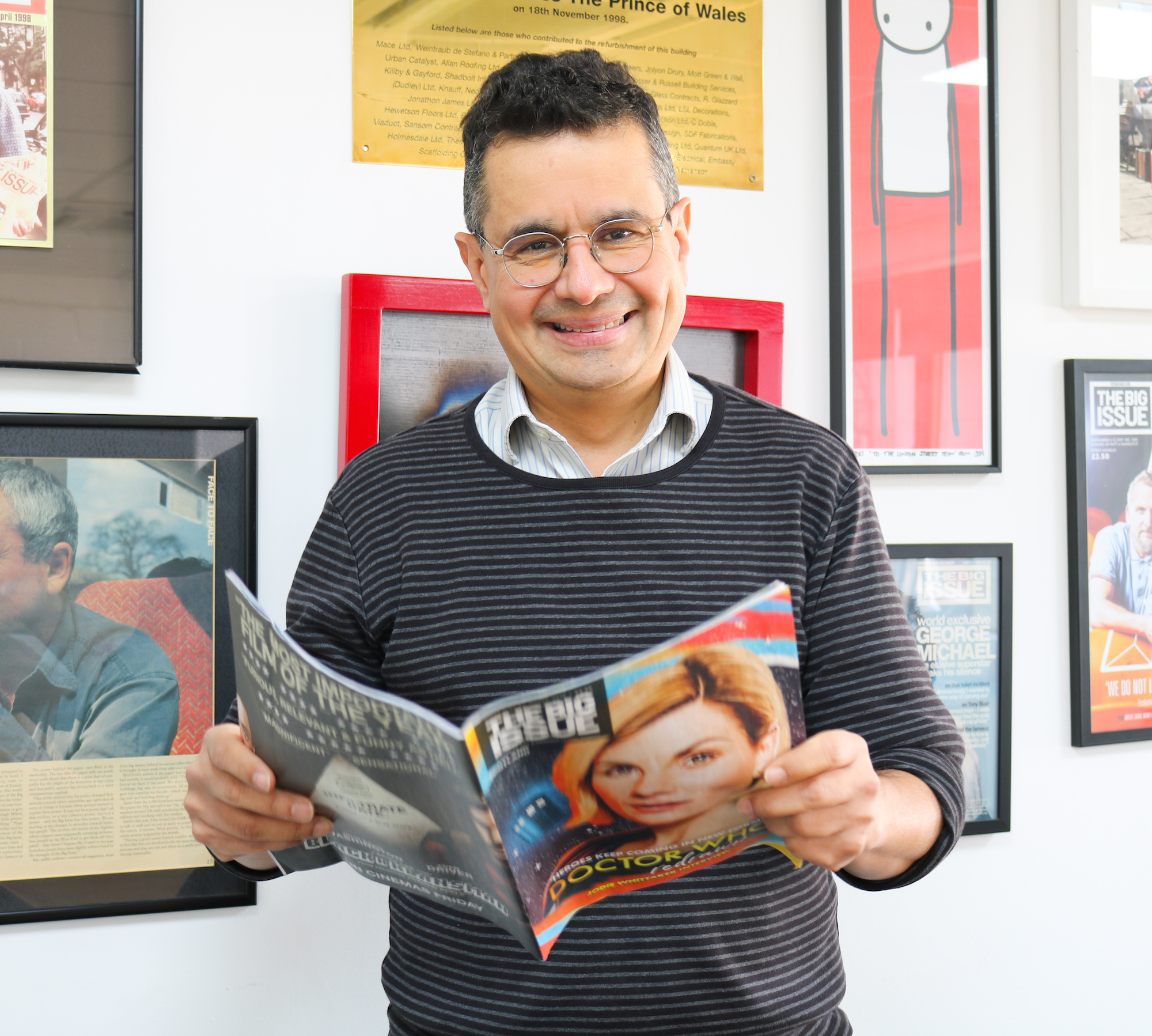Untold Banking #2: Modelling a path that mainstream finance could follow
It sometimes seemed like a sector put together with cardboard and pieces of string – and being a social investor can still feel lonely... Big Issue Invest boss Danyal Sattar reflects on 20 years of community investment in the UK.

I’ve been around this sector a fair time, one way or another. I started out with New Economics Foundation, an alternative think tank, and went on to work for community and small business lender ART Business Loans, the UK Sustainable Investment Forum, a network of social banks in Brussels and the early days of what became Charity Bank. Looping through foundations pioneering social investment and a short stint with Big Society Capital, today I am at Big Issue Invest, which lends to charities and social enterprises to dismantle poverty.
So cast your mind back to the 1990s, there were not that many players around. Of course, social investment has a long tradition, over hundreds of years, with organisations such as the Sir Thomas White Loan Charity, set up in 1542 to make microloans to apprentices who could not afford to buy their own tools. In the modern era, Industrial Common Ownership Finance, now known as Cooperative and Community Finance, had started in 1973. We had the Credit Union Act of 1979 which regularised the growth of that movement, then in its early days. Ecology Building Society had started operations in 1980. Unity Trust Bank set up in 1984. Triodos Bank came across from the Netherlands and took over a small UK anthroposophical bank and began more sustained operations here.
The ‘responsible finance’ providers, Community Development Finance Institutions, were only just getting going. In the mid-1990s I joined the team getting Aston Reinvestment Trust going, to make loans to small businesses, charities and social enterprises to help regenerate inner city Birmingham, under Dr Steve Walker and Pat Conaty. Bob Paterson was just starting on his journey trying to help empower communities to solve local problems relating to land and financial inclusion.
It felt a bit like we were trying to get this stuff going with string, cardboard and bits of sticky backed plastic. Maybe that is not such a bad metaphor. In some ways, we were trying to model out the possibilities of a different kind of financial institution, serving organisations that were credit worthy, but not in a conventional sense of the word. Sometimes, they just looked riskier, but a careful analysis would say, no riskier than the mainstream. Sometimes, they had objectives or impacts that would mean that despite a higher risk, you would lend anyway. One of our objectives at that time, was to try and model a path that mainstream financial institutions could follow. The scale and resource of the big lenders were so much bigger than our minor efforts. A little twitch in our direction would have such a great effect.
I have a perception that from the mid-1990s, the mainstream banks came more and more towards charities and social enterprises.
In our modelling, we had good support from some of the banks. RBS and NatWest [both now part of the Royal Bank of Scotland Group] were great supporters. Andrew Robinson at NatWest was particularly helpful. I remember talking to him about how I thought NatWest was one of the greatest supporters of job creation in the UK, being one of the largest, if not the largest, lender to the small to medium sized enterprises that were the job creators in the UK at that time. What a fantastic social impact – not the objective of the lending, but a great side effect. I recall Andrew would single handily get as many column inches in the press as the rest of the bank put together. Now, I’m not saying that four pages in a third sector magazine would be as valuable to the bank as a column in the FT would be, but it was still pretty impressive. Andrew was a great advocate. As was his colleague Eric Munro. There were many others at the bank, I am sure, who made a real difference to us in the sector, but change needs a champion, and they were great champions for us.
I cannot evidence this, but I have a perception that over the next 10 years or so from the mid-1990s, the mainstream banks came more and more towards charities and social enterprises. Certainly, NCVO figures showed the mainstream banks as the major finance providers to the charity sector and mainstream finance has been crucial to the development of the housing association sector. Of course, come recession or capital adequacy changes, and conventional lenders pull back from the unconventional and that is where you need dedicated institutions.
Being a social investor can be a lonely thing. There are not many of us actually investing in charities and social enterprises in the social and impact investing sector.
I do though think what RBS/NatWest did in setting up Social and Community Capital was unique. There have been initiatives by other banks, and I recognise them. There has been great support by Lloyds Bank for the credit union movement, for example. International banks, such as Citi, Deutsche Bank and HSBC have been very helpful to us in the sector. However, I cannot think of another large UK bank that set up a specific unit, in this case an independent charity, to lend to the sector and try and see they could practically do this community level finance from within the bank, in the UK. I don’t know what the effect was inside, but I hope that it was a bit of a window to the sector. It let us see a bit into the bank, and let the bank see out to the sector.
Finally, being a social investor can be a lonely thing. There are not many of us actually investing in charities and social enterprises in the social and impact investing sector. You look around the table, and see some other fellow social investors, you see some trusts and foundation and you see NatWest Social and Community Capital. Ah, you think. It’s us again. So, to my colleagues at Social and Community Capital, thank you for being there, working with us and financing the good stuff we get to do.
And why 20 years? I was standing next to Steve Wyler, a long-standing colleague in the sector, at an organisation’s 10th birthday and said, what do you think? “Halfway there,” was his answer, “as anything good takes 20 years.”
This article is part of a sponsored partnership with NatWest Social & Community Capital.



